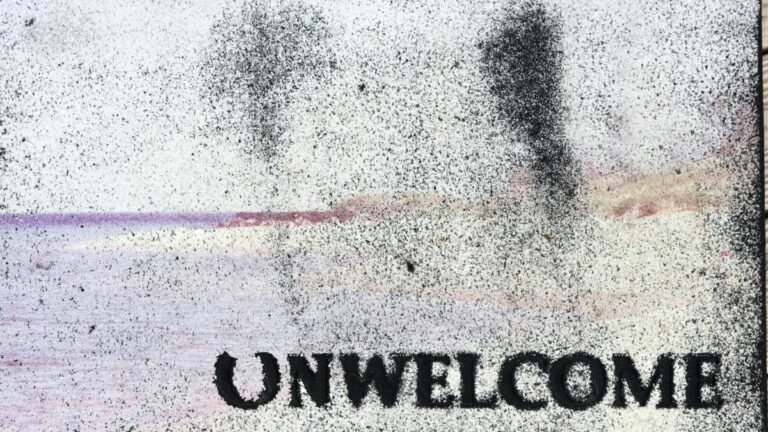
The Michigan Gaming Control Board (MGCB) has ordered the Curaçao-based operator behind Bovada.com and Bovada.lv to stop taking bets from Michigan residents. It might be hard to enforce such an order against a company without a US presence, but some believe Bovada will comply voluntarily.
Following an investigation, the MGCB rolled out the unwelcome mat on May 29, targeting Bovada’s parent company, Harp Media B.V., with a cease-and-desist. The letter gives Harp Media 14 days to pack up shop in the state or face legal action.
In the release, MGCB executive director Henry Williams said the action offers a “stern warning” that “flouting local regulations will not be tolerated.”
The MGCB remains steadfast in its commitment to upholding Michigan’s laws and regulations and will continue to actively monitor and enforce compliance within the state to ensure a fair and secure gaming environment for all.
In the meantime, the board is urging Michigan residents to “exercise caution” and verify the legality of sites before gambling online. To help, it published a list of legal Michigan gambling providers and asked residents to report suspicious or illegal sites.
There is precedent for Bovada exiting particular states when asked to do so. Its Terms & Conditions list the following states as off-limits:
- Delaware
- Maryland
- New Jersey
- Nevada
- New York
By the looks of things, that may soon include Michigan as well.
Bovada Afoul of Trio of Michigan Laws—Regulator
According to the MGCB, Harp Media’s unregulated and unlicensed operation of the Bovada sites in Michigan violates three state gaming laws.
Specifically, MGCB said Bovada is contravening :
- Lawful Internet Gaming Act: This legislation limits Michigan online gambling to operators licensed and regulated by the state. Only casinos licensed under the Michigan Gaming Control and Revenue Act and federally authorized tribal casinos can apply for licensing.
- Michigan Gaming Control and Revenue Act: Under this law, operating a gambling operation without a state license is a felony. Breaking this law can result in up to ten years imprisonment, a fine of up to $100,000, or both.
- Michigan Penal Code: The code broadly prohibits any form of gambling, which generally involves consideration, prize, and chance.
Notably, the MGCB’s Bovada challenge is only the latest effort in Michigan to shut down what the state views as illegal gambling.
Last fall, Michigan Attorney General Dana Nessel forced charitable sweepstakes casino provider Golden Hearts out of the state. A few months later, VGW, one of the US’s largest sweepstakes casino operators, opted to follow suit.
Around the same time, the MGCB cracked down on fantasy sports by formally adopting regulations limiting pick’ em-style contests. As a result, operators left the state.
However, Michigan’s gambling clampdown wasn’t solely online; the MGCB also conducted a series of raids on unregulated brick-and-mortar establishments. Considering the combined efforts, it’s obvious the MGCB is committed to eliminating the unlicensed gambling operators infiltrating Michigan’s legal market.
Legal Consequences Remain Unknown
One problem with offshore, unregulated gambling sites is they can be hard to punish. The MGCB appears to be counting on Bovada to comply voluntarily, as it has with the five states already on the exclusion list. However, Bovada did so many years ago, before the repeal of the Professional and Amateur Sports Protection Act in 2018.
If Bovada elects otherwise, how Michigan will enforce the order is unclear. The move may also be a play to get federal prosecutors involved. As of publication, the MGCB had not responded to Bonus‘ request to clarify the legal consequences.
Historically, the feds have had more luck than individual states. But, even then, victories are few and far between. Realistically, anyone accused must be either in or extradited to the US to face charges. And, for the most part, those responsible for offshore betting avoid crossing the border.
In a notable exception, in 2020, San Francisco-based Jay Cohen became the first American convicted of violating the federal Wire Act. As a result, the owner of Antigua-based World Sports Exchange received a 21-month conviction.
So far, industry reactions to the cease-and-desist have been positive, although some Michigan-based players have expressed the opposite on social media.
However, sharing on X (formerly Twitter), sports betting personality Jack Andrews said he believes Bovada will comply with the cease-and-desist—an opinion the regulator must welcome.
Sorry Michigan bettors, Bovada will adhere to the C&D from Michigan. Just like they’ve done in every other state when asked. They’re playing a long game.
FYI, VPN won’t be enough. You’ll need to prove your change of address as well.
— Captain Jack Andrews (@capjack2000) May 30, 2024
Meanwhile, Bovada has less than two weeks to decide.





